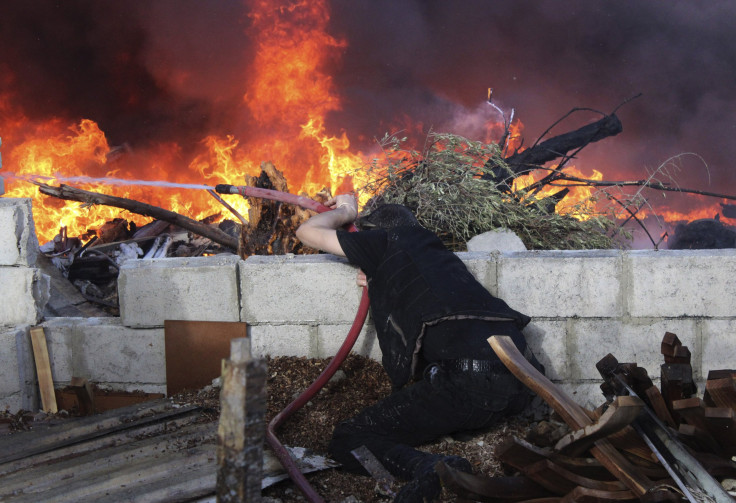How Much Further Can Assad Go? Israel Confirms Syria Used Chemical Weapons Against Civilians

Israeli Brigadier General Itai Brun on Monday claimed that Syrian President Bashar al-Assad has used chemical weapons, likely the deadly sarin gas, on his own people.
"To the best of our professional understanding, the [Syrian] regime has used lethal chemical weapons on a number of occasions, including the incident on March 19," Brun said at the Institute for National Security Studies, Haaretz reported. He added that the Syrian arsenal of chemical weapons was estimated to weigh in at more than 1,000 tons.
The March 19 incident to which Brun referred was the first public claim of specific chemical weapons usage during the two-year-old Syrian civil war between the Assad government and rebel forces, an event for which each side blames the other.
"The response of the world on this issue reflects the same trend of limited influence and a predisposition not to intervene," said Brun, as translated by Haaretz.
"The developments are certainly worrying ones: First the fact that chemical weapons have been used without any… [international] response is a very worrying development and could certainly signal that such a thing is legitimate."
U.S. President Barack Obama has repeatedly said that such an act from the Syrian government would be a “red line” for the United States. He reiterated that stance at a speech at the International Convention Center in Jerusalem during his visit to Israel last month. But more than a month after the March 19 attacks, the U.S. has still done nothing.
U.S. Defense Secretary Chuck Hagel, currently on his own Middle East tour, said at a press conference on Monday with Israeli Prime Minister Benjamin Netanyahu that the U.S. was still “assessing” the reports of chemical weapons use, Reuters said, but he reiterated that such use would be a “game-changer.”
The U.S. does not seem willing to accept that this might be the case, holding its noninterventionist line in the conflict. As an anonymous military official explained to the New York Times, “When you draw a red line, you have very little interest in crossing it if crossing it means you have to take action.”
What action the U.S. could or would next take is, of course, the big question.
Marina Ottaway, a senior scholar at the Woodrow Wilson Center, an independent research organization in Washington, D.C., said one of the few next possible steps would be an escalation in aid.
“The only way they could get involved is [by] increasing the amount of aid they deliver to the Syrian rebels,” Ottaway told International Business Times. “I think they would step up military aid just short of intervention, but I don’t see them sending troops.”
Ottaway also characterized the plain and extreme reluctance of the Obama administration to get involved in Syria as one huge stumbling block. “Whether this [the latest revelation from Israel] would be enough to convince the Obama administration that it is time to start providing lethal equipment, I’m not sure given their enormous reluctance.”
The U.S. recently announced it is stepping up the type of aid it provides to the Syrian rebels, from non-lethal aid to lethal/non-lethal, such as night-vision goggles. “They are acknowledging this is a military fight,” Ottaway said, adding that while it’s possible the Obama administration could begin providing light arms, she highly doubted the U.S. would ever agree to provide shoulder-mounted surface-to-air missiles, which is what the rebels reportedly covet.
Israel, of course, is most concerned about Syria potentially using said weapons against Israel or successfully transferring the weapons to Hezbollah in Lebanon. Hezbollah has been one of Assad’s staunchest supporters and has perpetually been one of Israel’s biggest threats.
On January 30, Israel carried out aerial raids on convoys that were suspected to be attempting to transfer chemical weapons to Hezbollah. The Israel Defense Force never confirmed the reason for the raids, or that they even happened, but on Tuesday Brun confirmed that there were missile launchers on their way to Hezbollah. Defense Minister Moshe Ya’alon said on Monday that when such red lines are crossed, Israel must act.
© Copyright IBTimes 2024. All rights reserved.












